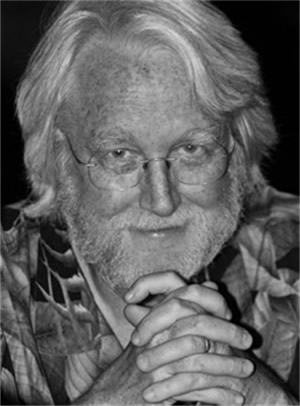By Corbin Black
Posted: September 4, 2018
 Scientists have studied RNA for over a hundred years, so it is exciting to hear that “we have just scratched the surface of the roles RNAs have in biology,” according to Professor Marvin Wickens, Co-Founder and Past President of the RNA Society.
Scientists have studied RNA for over a hundred years, so it is exciting to hear that “we have just scratched the surface of the roles RNAs have in biology,” according to Professor Marvin Wickens, Co-Founder and Past President of the RNA Society.
Prof. Wickens began his career as a biochemistry undergraduate student at the University of California, Berkeley, before completing his Ph.D. in Biological Sciences at Stanford University under the mentorship of Dr. Robert Schimke and Dr. Charles Yanofsky. He carried out his post-doctoral research with Sir John Gurdon at the MRC Laboratory of Molecular Biology in Cambridge, England. Each mentor clearly left a lasting impression, as reflected by Prof. Wickens – “my greatest insights about the process of doing research and what it requires, arose from my having had three, exceptionally different mentors.”
In 1983, Prof. Wickens started his own research laboratory at the University of Wisconsin in Madison and is currently the Max Perutz Professor of Molecular Biology. One question has fascinated Prof. Wickens throughout his career: how is RNA controlled? “If you care about how proteins or RNAs bind and control RNA,” he explained, “then you need to understand how and where in the cell the interactions occur, how long they last, the influence of other proteins and RNAs on the process, how the regulation is executed, and what it does in biology.” To get at these questions, his lab draws on a broad range of approaches including biochemistry, developmental biology, and molecular genetics; they also collaborate on structural analyses. Currently the lab is addressing the dynamics of RNA-protein interactions in vivo and their role in regulation, biology and evolution.
“One of my greatest pleasures in science has been to be part of the large RNA community and
watch new discoveries burst in out of the blue”
Prof. Wickens has had a highly successful scientific career and is an elected member of the American Academy of Arts & Sciences—so it may come as a surprise that his academic career almost ended in graduate school. As he put it, “I discovered that my initial thesis project was not going to work, due to failures in a reagent I had worked hard to make.” It was encouragement from his supervisor, Dr. Schimke that helped Prof. Wickens overcome one of the most difficult moments in his career and remain committed to science.
Prof. Wickens has mentored over 50 graduate students and post-doctoral fellows, many of whom have gone on to interesting careers of their own. It is clear that his scientific passion for research provides inspiration to those around him, and that what the vast majority of his trainees have in common is that they remain immersed in science. Unsurprisingly, his love of science infuses his advice for trainees. “Concentrate on your science: it is the engine that drives everything else,” he said. “Try not to worry too much about what the hot topic is, or where the field will be when you are ready to get a job. Find a problem you love – preferably one that you think will take you into unexplored territory.” His last bit of advice for trainees is that “if you are interested in having a lifelong partner, find a really great and supportive one.”
Having been involved with the RNA Society from the beginning, Prof. Wickens has too many fond memories to recount only one. “I have met so many wonderful people at Society Meetings – at every level, and for all kinds of reasons. At talks, at dinner, at the bar – you just never know.” The reason he still remains so involved in the RNA Society? “I enjoy being part of this vibrant, exciting community. One of my greatest pleasures in science has been to be part of the large RNA community and watch new discoveries burst in out of the blue, often found in an entirely unexpected way.” After all, he concluded, “We are all part of that effort; we are in it together.”
Prof. Wickens’ favorite RNA is “The next one. You know some new type of RNA is out there, and someone will find it and tell you about it at the next RNA Society meeting and you’ll smile a big smile and realize a new world just opened up in front of you, just like that, in an instant.” So make plans to attend the annual RNA Society Meeting, but feel free to contact Prof. Wickens directly ([email protected]) if you’d like to talk with him before RNA2019 in Krakow!
